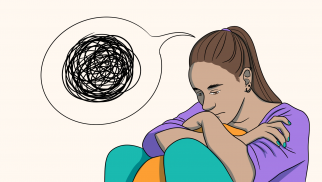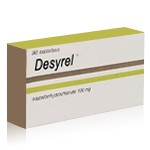Understanding Depression Accompanied by Anxiety

What Happens When Depression and Anxiety Occur Together?
Depression and anxiety are two of the most common mental health disorders, but what happens when they appear together?
- Many people struggle with both conditions simultaneously, making it difficult to find relief.
- Depression brings overwhelming sadness and a lack of motivation, while anxiety fuels excessive worry and restlessness.
- Together, these disorders create a cycle of distress, where one condition can worsen the other.
- Understanding the connection between depression and anxiety is the first step toward finding effective treatment.
Symptoms of Depression Accompanied by Anxiety
- Individuals experiencing both depression and anxiety often face a combination of emotional and physical symptoms.
- Common symptoms include:
- Persistent sadness and hopelessness
- Excessive worry and nervousness
- Fatigue and low energy levels
- Difficulty concentrating or making decisions
- Insomnia or sleeping too much
- Increased heart rate or panic attacks
- These symptoms can disrupt daily life, making it challenging to work, maintain relationships, or find joy in activities.
Causes and Triggers of Depression and Anxiety
The exact cause of depression and anxiety varies from person to person, but several factors can contribute to their development:
- Genetic predisposition
- Chemical imbalances in the brain
- Traumatic life experiences
- Chronic stress or unresolved emotional conflicts
- Substance abuse or medical conditions
Identifying these triggers is essential in managing and preventing episodes of depression and anxiety.
The Impact on Daily Life
- Depression and anxiety can affect all aspects of life, making it difficult to perform daily tasks.
- Some of the most common challenges include:
- Struggling to maintain relationships due to mood swings and withdrawal
- Poor performance at work or school
- Avoiding social situations out of fear or exhaustion
- Developing unhealthy coping mechanisms like overeating, smoking, or alcohol consumption
- Without proper management, these struggles can lead to a downward spiral, reinforcing negative thoughts and emotions.
Coping Strategies and Treatment Options
- Thankfully, several effective treatment options and coping strategies can help individuals manage their symptoms:
- Therapy, such as Cognitive Behavioral Therapy (CBT), helps identify and change negative thought patterns.
- Medication can regulate brain chemistry and reduce symptoms.
- Lifestyle changes, including regular exercise, a balanced diet, and sufficient sleep, can improve mental health.
- Relaxation techniques like meditation, deep breathing, and mindfulness can reduce anxiety levels.
- Seeking support from family, friends, or support groups provides emotional reassurance.
Finding Relief with Desyrel (Trazodone)
- One effective medication for treating depression accompanied by anxiety is Desyrel, with the generic name Trazodone.
- Trazodone is an antidepressant that helps restore the balance of serotonin in the brain, improving mood and reducing anxiety.
- Benefits of Trazodone include:
- Alleviating depressive symptoms such as sadness and fatigue
- Reducing excessive worry and anxious thoughts
- Improving sleep quality, which is often disrupted in people with anxiety and depression
- While medication can be highly effective, it should be taken under medical supervision to ensure safety and effectiveness.
Depression accompanied by anxiety is a challenging condition, but it is manageable with the right approach. By recognizing the symptoms, identifying triggers, and seeking professional help, individuals can regain control of their mental well-being. Whether through therapy, lifestyle changes, or medications like Trazodone, there are many paths to recovery. The key is to stay proactive and never lose hope—help is available, and a healthier future is within reach.
Article Post:Editorial Team of RXShop.md
(Updated at Mar 29 / 2025)

